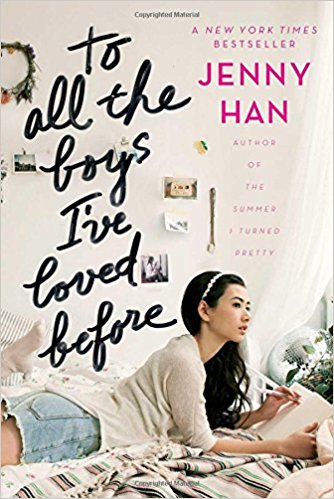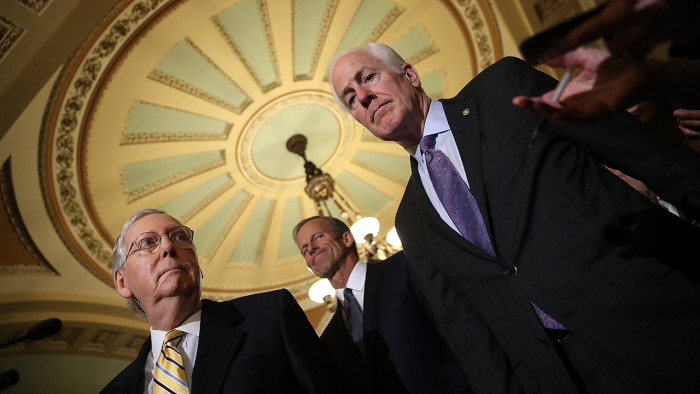By Simran P. Gupta
Contributing Writer
In an era of “South Park,” “Fresh Off the Boat,” “Black-ish,” “Jane the Virgin,” and now the highly anticipated and discussed “Quantico,” the role of diversity in TV is a discussion that’s been gaining ground.
It reached a peak, perhaps, when Viola Davis won her Emmy and gave a speech that was hailed as “stirring” and “historical” by various media outlets. Indeed, modern television seems to be veering off of the generic template of the white middle class family. More and more shows are centering on people of color, exposing identities, and even confronting stereotypes. One must assess, however, how effective they are for television and for society.
On Sept. 29, the premier of the long-anticipated drama “Quantico” aired on ABC. The show tells the story of young FBI recruits who are on the Quantico base in Virginia for 21 weeks of training. These recruits are considered to be the cream of the crop, the best and the brightest, except for one mystery that haunts all of them: one of the recruits is suspected to have masterminded the biggest terrorist attack since 9/11.

Suddenly the recruits, each with their own secrets and reasons for joining, are at risk. Acclaimed Bollywood actress Priyanka Chopra plays the lead role; the rest of the cast includes Yasmine Elmasri, Aunjanoue Ellis, Anabelle Acosta, Johanna Braddy, and more. A racially diverse cast in a show dealing with the controversial subject of terrorism and identity has sparked many a debate, including over-coverage of the cast and show’s premise.
Priyanka Chopra herself has garnered much media attention in the US. A Bollywood superstar, she has a number of acting accolades in her back pocket, over 11 million Twitter followers, two singles with Pitbull and will.i.am respectively, and a Miss India and Miss World crown. As a UNICEF Goodwill Ambassador, a United Nations Girl Up Champion, and an avid advocate for girl’s education in India, she is hardly a newcomer in any scene.
Some hail her as the megastar India has made her, and still others claim that Hollywood has discovered an actress. Chopra shared that she is excited about working with such a diverse cast.
“The girl next door’s face has changed,” she shared in an interview with CNN. “She does not come from a particular place…she can be from anywhere.” With a nod to the increasing awareness of multiculturalism that seems to be catching, one can only hope that the show delivers and the audiences absorb.
Critics, however, spot a problematic trend forming. In the same interview, Chopra and Matt Roush, a television critic, discuss the casting process for the show. Chopra’s character, Alex Parrish, is biracial with an Indian mother and American father. Roush hails the casting as “colorblind” in that nobody would know that the character has South Asian roots, allowing the character to be as easily played by white actress or another actress of color.
Chopra has positive feelings about “breaking out” of a box that western television and film tends to put Indian talent in and about not “stereotyping” the Indian actor’s talent. However, the opposing side worries that the catering of colorblindness and erasure of a South Asian heritage will harm the progress that “Quantico” and multicultural TV are attempting.
A similar occurrence can be seen in an episode of “Fresh Off the Boat.” In the first episode, head of the family Louis Huang tosses around the idea of hiring a white greeter for his restaurant, so that his white patrons will spot a familiar face and feel more comfortable.
Bloggers present it as a metaphor for the state of diversity in television today: “networks cater to white audiences by…trying to universalize the nonwhite narratives that they do have…rather than taking chances on stories whose characters don’t superficially resemble the majority of their viewers.”
The Emmys have also been a hot topic among the public, mostly due to shows like “Jane the Virgin” and Viola Davis’s historic Emmy win. Her award for her lead role in “How to Get Away with Murder” is the first in the category ever to be awarded to a black woman. Indeed, the success of actors in these shows and the ability of the shows’ storyline to draw in viewers and positive ratings leave something to be considered.
Why is it such a surprise that shows telling stories about black characters rather than white characters are so successful? Why has it taken this long for shows such as “Jane the Virgin” and “Fresh Off the Boat” to arrive and smash stereotypes while still maintaining a comedic front? How will a diverse presence in “Quantico” affect the controversial story of terrorism, and the audiences’ reaction?
These are all questions at the forefront of viewers’ minds as multicultural shows are finally gaining ground. Only time will tell if networks are truly devoted to telling these narratives.




















Sabra • Sep 30, 2015 at 3:28 pm
Chopra is also local, from Newton, MA.
http://www.bostonmagazine.com/arts-entertainment/article/2015/08/25/priyanka-chopra-quantico/